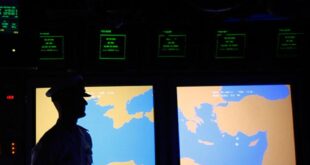A report has revealed that the British Special Air Service and the European country’s other special forces have carried out operations clandestinely in Nigeria and 18 other nations for the past 12 years.
This was corroborated by an incident in 2012 when a group of SBS commandos attempted and failed to rescue a Briton and an Italian held by an Islamist group in Nigeria.
The British SAS also engaged in covert operations in Algeria, Estonia, France, Oman, Iraq, Kenya, Libya, Mali, Cyprus, Pakistan, Somalia, the Philippines, Russia, Syria, Ukraine, Yemen and most recently Sudan.
The UK Special Forces provided non-combat support during French military action against jihadi groups in Mali.
They also trained Nigerian, Moroccan, and Cameroonian soldiers and collated intelligence threat assessments in response to rising instability in the Sahel region.
According to the Guardian UK, the elite military units do not possess the UK ministers publicly certifying their operations, thus, they operate covertly.
But, based on media leaks, a research organisation called Action on Gun Violence has compiled a list of their operations from 2011, the AOAV added in a May 23, 2023 report titled, “Britain’s Special Forces on service in at least 19 countries since 2011”.
It provides the impression that the prime minister and defence secretary frequently send personnel of the SAS, Special Boat Service, and Special Reconnaissance Regiment on dangerous operations, usually when Britain is not at war.
Special forces have been particularly active in Syria, with reports of them entering the country in 2012 to help rebel groups fighting against President Bashar al-Assad. They are also reported to have been sent in 2013 to identify military targets in advance of a bombing campaign that MPs ended up voting against.
But because of the fixation with secrecy, Matt Tonroe, a member of the SAS, was officially identified as a member of the Parachute Regiment when he was murdered in Syria in 2018. It was later discovered that he had actually been killed by his US colleague’s grenade, not an improvised explosive device.
Although Britain is not an official participant in the conflict, 50 members of the UK special forces were mentioned as being present in Ukraine earlier this year in leaked Pentagon documents. The numbers for the US and France were listed as being 14 and 15, respectively. Nevertheless, their goal was left unstated.
The lengthy list of deployments, according to the report’s authors, happened despite a lack of control.
Even though special forces can be deployed without the Commons’ consent and are not subject to parliamentary committee investigations, etiquette requires that MPs vote to authorise a war.
After a terrorist massacre of 38 people, including 30 Britons, at a beach hotel in Tunisia in June 2015, it was once claimed that former British prime minister, David Cameron, had granted the SAS “carte blanche” to arrest or assassinate Middle Eastern Islamic leaders.
“The extensive deployment of Britain’s Special Forces in numerous countries over the past decade raises serious concerns about transparency and democratic oversight,” said Iain Overton, the executive director of AOAV. “The lack of parliamentary approval and retrospective reviews for these missions is deeply troubling.”
At the time, current defence secretary and Tory MP Ben Wallace commended the military effort.
The operation, according to the Ministry of Defence, also included troops of the Royal Marines, the RAF, and the Parachute Regiment, although it omitted special forces.
Special forces routinely take part in both exfiltration and hostage rescues.
 Eurasia Press & News
Eurasia Press & News



